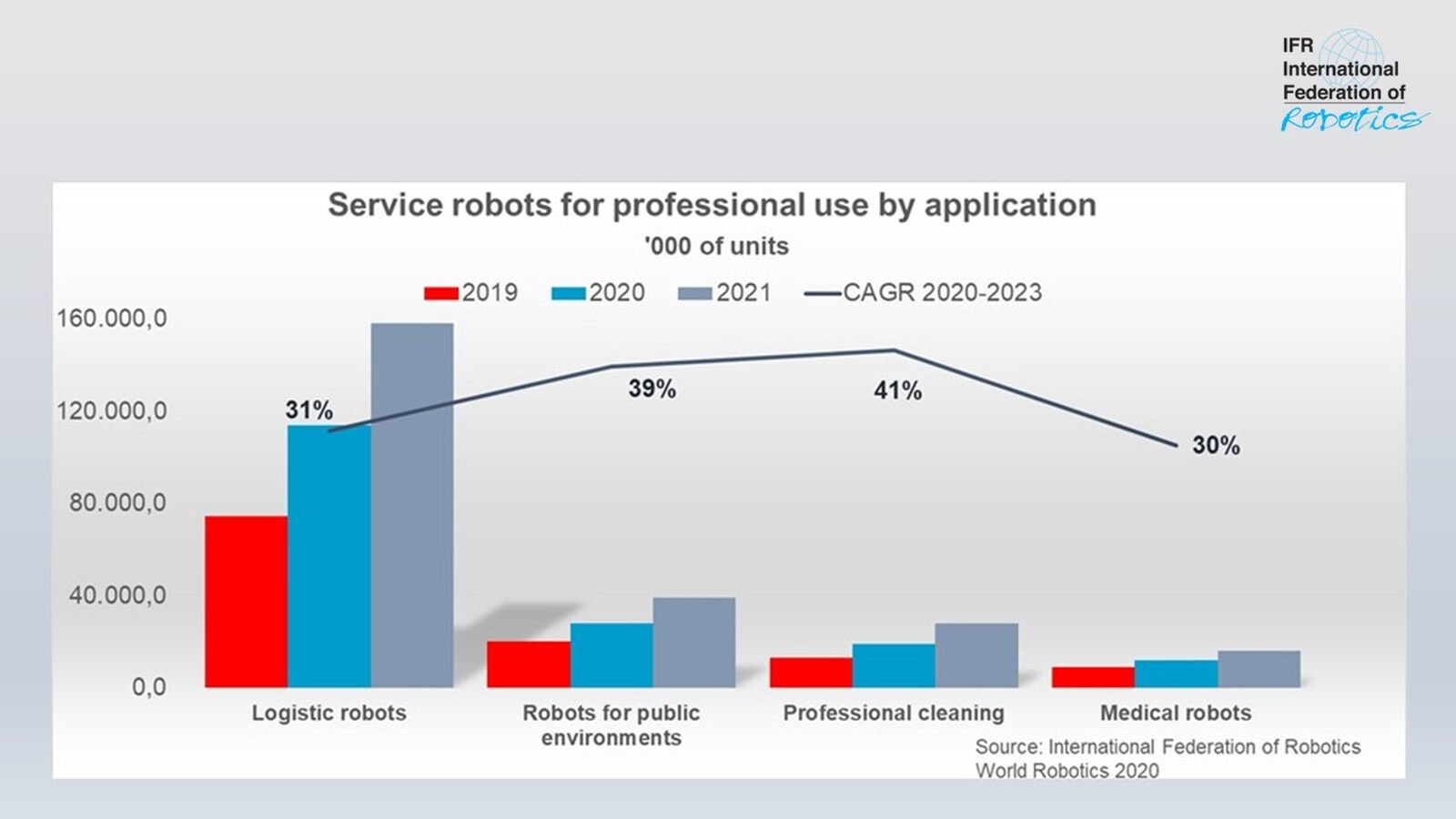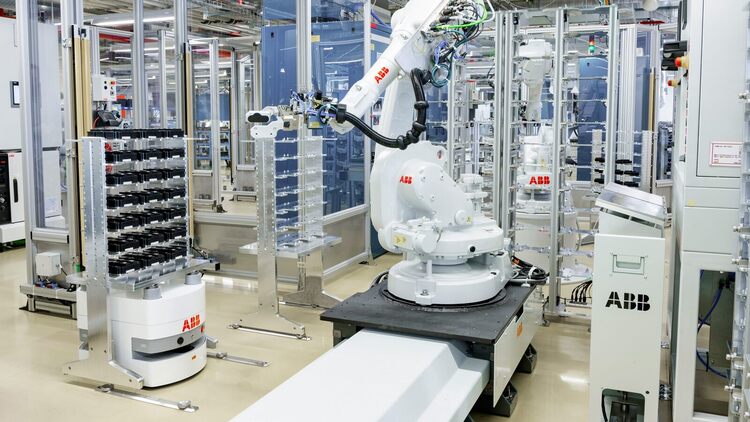
Robohub.org
Mobile robots revolutionize industry
Robot mobility is booming worldwide: Unit sales of Autonomous Mobile Robots (AMRs) in the logistics sector e.g. will increase by 31% between 2020 and 2023 annually. At the same time, the use of AMRs in public environments will also go up rapidly – IFR predicts unit sales will grow by 40% per year worldwide.

How mobility is reshaping robotics and why this is a game-changing revolution has been researched by the International Federations of Robotics and published in the new paper “A Mobile Revolution”.
“Mobile robots have traditionally operated in industrial settings to transport parts throughout the factory or feed machines,” says Milton Guerry, President of the International Federation of Robotics. “Today, AMRs also work in applications where contact with the general public is intended. They provide information to shoppers, deliver room service orders in hotels or support police officers by patrolling city areas. IFR´s mobile revolution paper gives an overview of the main use cases for mobile robots and their most significant impacts.”
A short history of autonomous mobility
While researchers have worked on technologies for autonomous mobility since the 1940s, autonomous mobile robots have only become commercially viable over the last decade. This is primarily due to the availability of far more powerful and cheaper computing power. This has led to rapid developments in sensor, vision and analytics technologies which enable robots to connect in real-time to their environment. Today, “Autonomous Mobile Robots” show double digit growth. AMRs navigate and perform functions autonomously in industrial and service sectors and pave the way for mobile robot adoption around the world.

BlueBotics mini™ mobile robots in operation at ABB’s semiconductormanufacturing plant in Lenzburg, Switzerland. © ABB
Outlook
“Mobile robotics is a dynamic field of development and we expect exciting advances over the next decade,” says Milton Guerry. These advances will take place in both hardware and software. Mobile robots will become lighter and more flexible. AMRs and service robots will be able to navigate in a range of indoor and outdoor environments more easily as advances in sensors and software algorithms mean that navigation and vision become more and more precise.
Publication
tags: c-Industrial-Automation, Report





